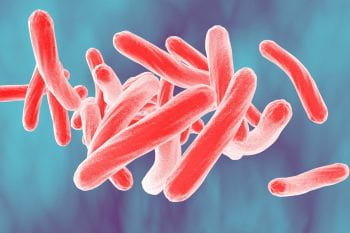Living conditions in India, marked by inadequate public sanitation and hygiene, contribute to a faster rise in infectious diseases. Understanding and addressing common communicable diseases is crucial for the safety of families and community well-being. Additionally, having a health insurance policy is essential for financial protection during these health challenges.
Understanding Communicable Diseases:
A communicable disease can spread through contact with an infected person, ingesting contaminated items, or exposure to disease-carrying vectors. Awareness of the prevalent communicable diseases is imperative to ensure early detection and timely treatment.
COVID-19 (Coronavirus): Caused by the SARS-CoV-2 virus, COVID-19 has had a significant global impact. Preventive measures are crucial, including social distancing, frequent handwashing, mask-wearing, and isolation when impacted. Insurance providers offer health insurance plans covering COVID-19, providing financial support for hospitalisation and related expenses.
Malaria: Transmitted by infected mosquitoes, malaria exhibits symptoms like fever, chills, and headaches. It can be life-threatening if not treated promptly. Family health insurance plans can offer emergency medical care for children.
Typhoid: Caused by Salmonella Typhi, typhoid is contracted through contaminated food or water. Symptoms include fatigue, headache, prolonged fever, abdominal pain, and constipation or diarrhoea. Increasing antibiotic resistance makes treatment challenging.
Tuberculosis (TB): Mycobacterium tuberculosis causes TB, primarily affecting the lungs. Airborne transmission makes it a public health concern. TB is curable with antimicrobial medications.
Hepatitis: Hepatitis causes liver inflammation, potentially leading to severe liver conditions. Hepatitis viruses (A, B, C, D, E) are the primary culprits. Hepatitis can result from infections, alcohol, or drug use.
Diarrhoea: A leading cause of child mortality, diarrhoea results from intestinal infections. Contaminated food or water and improper hygiene contribute to its spread.
Influenza (Flu): An airborne virus affecting the respiratory system, flu symptoms include fever, sore throat, and body aches. Children are more susceptible, and preventive measures are essential.
Importance Of Health Insurance:
The financial goal of securing one’s family necessitates readiness for unexpected medical emergencies. Health insurance ensures financial stability during health crises.
Bajaj Allianz’s medical insurance may cover medical costs associated with communicable diseases, allowing for cashless hospitalisation or reimbursement. The insured amount can cover additional medical expenses, ensuring comprehensive financial support. *
Ensuring Safety Through Health Insurance:
Investing in health insurance plans for parents is a significant step in safeguarding one’s family and self from unforeseen health challenges. Online insurance providers facilitate quick and hassle-free claims, with a dedicated customer service team available round-the-clock.
In conclusion, it’s a journey towards health literacy, preventive action, and financial preparedness. Communicable diseases may be formidable adversaries, but with awareness and health insurance, families can face these challenges with resilience and emerge stronger on the other side. Health insurance emerges as the key to turning knowledge into practical resilience, providing the financial backing to safeguard our well-being and loved ones. Let our awareness inform and empower, and may health insurance stand as a steadfast ally in our journey toward a healthier and more secure future.
Subscribe to Bajaj Allianz General Insurance YouTube Channel here!
* Standard T&C Apply
Insurance is the subject matter of solicitation. For more details on benefits, exclusions, limitations, terms, and conditions, please read the sales brochure/policy wording carefully before concluding a sale.


